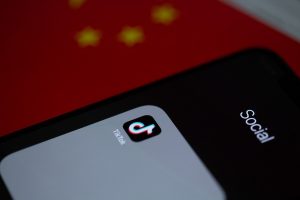Against the backdrop of the recent Congressional hearing featuring Shou Zi Chew, TikTok’s chief executive officer, a growing number of U.S. policymakers are advocating a ban of TikTok. While concerns over the platform’s security implications deserve consideration, a complete ban would set the precedent for a more intrusive government role and restrict Americans’ future ability to access innovative digital products and services.
TikTok is an example of a growing list of globally interconnected technology companies and startups developed, led, and partially owned by entities with ties to multiple nations, including China and the United States. Although TikTok is led by a Singaporean CEO and headquartered in Singapore, it is owned by ByteDance, a Beijing-headquartered technology company. In turn, around 60 percent of ByteDance shares are owned by predominantly U.S. investment firms like General Atlantic and Fidelity.
Some U.S. national security experts argue that, since ByteDance remains subject to Chinese data laws, TikTok could improperly access sensitive data of American users. In response, TikTok management points out that, as part of the Project Texas arrangement, U.S. user data would be stored in the United States by Oracle, a U.S. company, and remain subject to American, not Chinese, data laws.
In February 2023, national security concerns led the Biden administration to instruct federal agencies to remove TikTok on government-owned devices within 30 days. Since then, the governments of Australia, Canada, France, the United Kingdom, and others have introduced similar restrictions for official devices. The European Commission – the European Union’s executive arm – along with the European Council and European Parliament adopted a similar approach, meaning that employees of these three institutions would not be allowed to use TikTok on EU-owned devices.
While such partial restrictions are now widespread and are generally driven by well-meaning security concerns, a complete ban against a specific app would be more unusual. Among G-20 countries, only India appears to have fully outlawed TikTok, a move made in the aftermath of Sino-Indian border skirmishes in summer 2020.
The ban, which was subsequently expanded to cover 321 mostly Chinese-owned apps, also outlawed video games and Chinese rivals of India’s e-shopping platforms. According to critics, the ban’s comprehensive scope and the lack of due process reflected New Delhi’s attempts to signal a hardened position against Beijing following the conflict – rather than being the result of careful evaluation of national security risks posed by individual applications.
Other countries that have banned TikTok include Afghanistan and Iran, where the app is deemed incompatible with the country’s Islamic laws. The Jordanian government also introduced a ban after users shared videos of protests due to rising fuel prices, claiming that the app incites “violence and disorder.”
TikTok has hardly been the only target of efforts to restrict freedom of expression. The issue remains particularly relevant for U.S. companies like Facebook and Twitter, which have been subject to similar restrictions internationally. Countries that currently or previously blocked access to Twitter include not only China but also emerging economies like Egypt, Nigeria, Turkey, and Turkmenistan. While the reasons cited for such restrictions vary by country, they include instability and the promotion of Western, democratic values supposedly at odds with traditional values.
Against this backdrop, a full ban on TikTok risks enhancing the legitimacy of the authoritarian practice of restricting access to social media platforms and free information. If the United States were to ban foreign social media platforms, authoritarian governments could more credibly assert their right to do so – even though the reasons for such restrictions are less noble.
More worryingly, a complete ban could have serious implications for the future role of the government in regulating how American consumers use the internet. Legal mechanisms introduced to ban TikTok could, for instance, be used to restrict future U.S. consumer access to other foreign-owned apps, websites, and even shopping or educational platforms.
That is especially likely if regulators are given broad discretion in defining and responding to perceived national security interests. Could one of the world’s leading language learning platforms – which many Americans use to study and teach foreign languages, including English – be subject to a ban because it’s a Hong Kong registered company with Shanghai offices subject to Chinese data privacy laws?
The list of apps that could find themselves under the regulatory crosshairs of such an approach is much broader than what Americans may think. That would hardly be a welcome development for U.S. consumers who could face restrictions on the use of innovative platforms or products because they are developed, run, or partially owned by entities of nationalities that regulators consider unfriendly.
Finding a nuanced, evidence-based approach to the specific privacy and security risks posed by individual applications is no easy task. U.S. lawmakers must be cautious of a reactionary approach that could diminish the United States’ global reputation and precedents that could pave the way for a less free approach to the internet.































